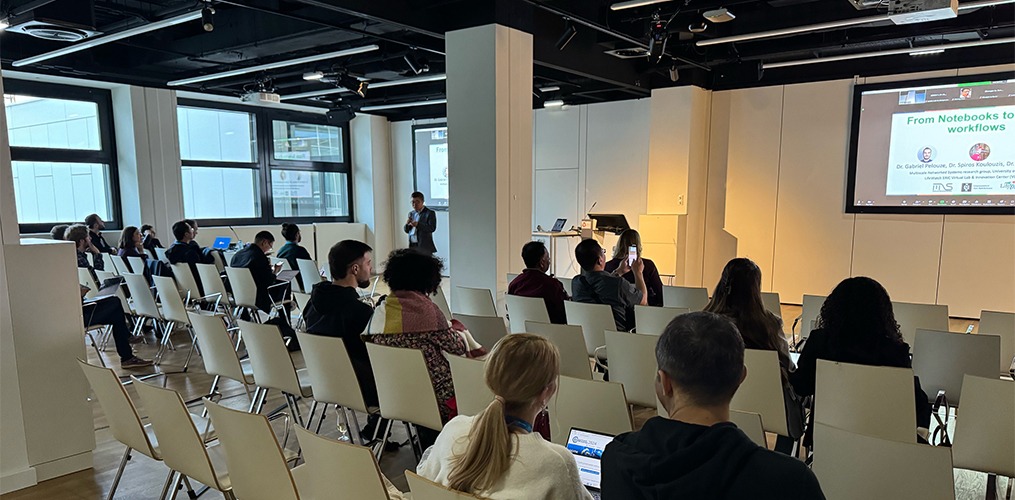
From April 14 to 19, the 2024 General Assembly of the European Geosciences Union (EGU) – a non-profit international union of scientists focused on planetary and space science research in Europe – occurred in Vienna, Austria. With around 19,500 members worldwide, the EGU24 General Assembly counted 20,979 registered attendees, with 18,388 present in Vienna from 116 countries and 2,591 people joining online from 109 countries.
In a session with ICOS-ERIC and the EGI Foundation, LifeWatch-ERIC presented how to use the NaaVRE Virtual Research Environment (VRE), focusing on teaching participants the essential technologies for notebook containerisation, workflow composition and cloud automation in a Jupyter notebook-based VRE. Bringing together environmental researchers, data developers, scientists and engineers, the session aimed to deepen participants’ understanding of data integration, VREs, web services and their central role in environmental science. The session focused on discovering data and tools in a cloud-based environment to promote open and fair data management and research results. During this training session, speakers discussed the difficulties of dealing with complex and time-consuming processes when customising and executing data workflows in the cloud using Jupyter Notebooks. It also provided tips and techniques for research using Jupyter notebooks and Virtual Research Environments (VREs) workflows.
LifeWatch ERIC also hosted a scientific session at the EGU24 General Assembly, during which use cases were presented on the successful use of Research Infrastructure in scientific research, and a Town Hall meeting about Open Science, Open Data, and Open Access.
Why does it matter
Environmental science requires expertise in data integration, virtual research environments, web services and open science practices. Researchers face complex challenges and must collaborate with scientists and developers to solve them. Interdisciplinary collaborations extend beyond scientific domains, and improving machine-to-machine interactions is crucial. By enabling findability and interoperability of data and services across different technologies and environmental scientific domains, researchers can stay ahead in the rapidly evolving landscape of data science and technology. To learn more about NaaVRE, please visit this page: https://naavre.lifewatch.dev/vreapp